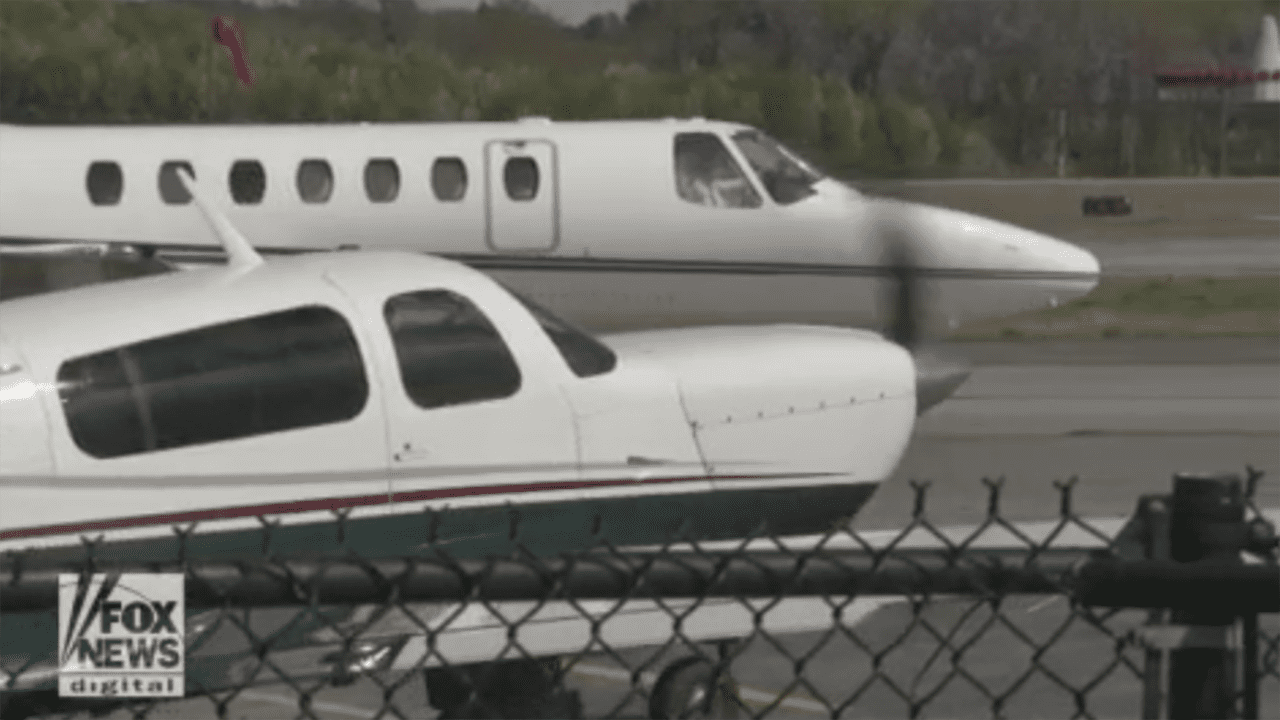Global Courant 2023-04-26 22:46:03
Atlanta, GA – Struggling, frustrated and scared.
There is concern about a current trend in the airline industry: some pilots engage in health care avoidance behaviors, especially when it comes to mental health care.
A retired pilot with three decades of experience told Fox News, “It’s really hard to get help.”
IF SUICIDE RISES, A NEW AI PLATFORM COULD FILL THE ‘GAP’ IN MENTAL HEALTH, SAY BOSTON RESEARCHERS
In one of the most stressful jobs where pilots are often overworked, Capt. Reyné O’Shaughnessy to Fox News: “They struggle with chronic stress, anxiety, depression, use and abuse of alcohol – and in some cases, drugs.”
A study on this topic appeared in 2019 in the Journal of Occupational and Environmental Medicine (JOEM).
View from an airplane. About 72% of military pilots admitted to healthcare avoidance behaviors for fear of losing their wings, a recent survey found. (iStock)
A simple question was asked: Have you ever worried about seeking medical care because it could affect your career?
Almost 78.6% of the pilots answered “yes”.
An even more recent study focused on military pilots and funded by the US Air Force asked a similar question.
Being a pilot is a stressful job where anything can happen.
The results of the 2023 study found that 72% of military pilots admit to engaging in care avoidance behaviors for fear of losing their wings.
Captain O’Shaughnessy, stationed in the greater Pittsburgh area, said that while pilots are not encouraged to lie to their Aviation Medical Examiners (known as AMEs), she said pilots “guard the information that is so close to us, from fear that we may lose our livelihood.”
Captain O’Shaughnessy told Fox News that pilots “guard the information that is so close to us for fear we could lose our livelihood.” (Fox news)
An AME is the person who evaluates and ultimately medically certifies a pilot to fly for the Federal Aviation Administration.
An AME for the FAA, Dr. William Hoffman, told Fox News that the process for pilots to get their aeromedical certificate after it has been suspended can be time consuming and expensive.
AI MODEL HELPS PREDICT SUCCESS WITH MORE ACCURACY, RESEARCHERS SAY
Pilots cannot fly without the certificate.
Facing mental health barriers only adds to an already stressful lifestyle.
“It can take months to years, depending on how complicated their history is,” he said. “During that time, the airmen cannot fly.”
“So for airline pilots, that could lead to negative occupational, social and financial consequences.”
Pilots are responsible for the lives of everyone on board. (Fox news)
Being a pilot is a stressful job where anything can happen.
Recently, an airplane engine caught fire after hitting a flock of geese minutes after takeoff in Ohio. What happened is proof that anything can happen – and it shows the reality of the weight pilots carry every day.
They are responsible for the lives of everyone on board.
Facing barriers to their mental health care only adds to an already stressful lifestyle.
About 56.1% of pilots reported a history of healthcare avoidance behavior.
In a 2022 study conducted at the University of North Dakota and published in the Journal of Occupation and Environmental Medicine, Dr. Hoffman researching the issue (he is also a member of the faculty).
The results were astounding: About 56.1% of pilots reported a history of healthcare avoidance behavior, while 45.7% admitted to seeking informal medical care.
Capt. Reyné O’Shaughnessy told Fox News that some pilots today “struggle with chronic stress, anxiety, depression, use and abuse of alcohol — and in some cases drugs.” (Fox news)
Capt. O’Shaughnessy provided context on the latest statistic, saying pilots “go into hiding, and they self-medicate, or they don’t take drugs at all. And that’s the conundrum, because regulation does nothing but drive pilots underground.”
Both dr. Hoffman and O’Shaughnessy said the FAA deserves all the credit.
“I do believe they are trying to make progress in changing the regulations. Now I think the real problem is how fast,” O’Shaughnessy said.
In a statement to Fox News, the FAA said it “encourages pilots to seek help if they have a mental illness, as most, if treated, do not disqualify a pilot from flying.”
FAA ORGANIZES ‘SAFETY SUMMIT’ AFTER SERIES OF NEAR AIRCRAFT COLLISSIONS
It said the concern is not targeting pilots simply seeking help for mental health, but rather certain drugs that may be prescribed to treat anxiety or depression.
The FAA said that if certain medications are used or conditions are left untreated, it is the factor that can disqualify a pilot from flying.
Yet another part of the problem, according to Dr. Hoffman, is misinformation.
“A lot of pilots don’t know you can see a therapist and still fly.”
He said: “Pilots are really frustrated. There’s a lot of misinformation going around about mental health in aviation. A lot of pilots don’t know that you can see a therapist and still fly.”
In recent years, the FAA has made changes, including the creation in 2016 of the Pilot Fitness Aviation Rulemaking Committee, known as ARC.
It was created to evaluate the mental health of pilots after the German Wings 9525 incident, in which a co-pilot deliberately crashed a passenger jet in the French Alps, killing all 150 people on board.
One veteran pilot said: “We have to train differently. We have to because when we do that, not only our passengers are safe, not only our pilots, but also our airspace.” (Fox news)
The copilot had been treated for suicidal tendencies, but concealed the information from his employer.
Dr. Hoffman said research is still limited, so it’s important to do more and find out how to better improve mental health in the aviation industry.
“If there was an easy solution, we would have already identified it,” he said.
It’s not just the FAA or even the pilots that need to help find a solution.
If pilots need assistance, they are encouraged to consult their healthcare provider.
Dr. Hoffman said: “All stakeholders benefit from working to avoid health care. For pilots, it’s about getting the health care they need. For airlines and companies, it’s about cutting costs and maintaining the safety of the aircraft. aviation. And for regulators, it’s about making sure the aerospace system is safe.”
Meanwhile, Captain O’Shaughnessy said there must be a holistic way to train pilots in the future.
A plane lands at Ronald Reagan Washington National Airport in Virginia. (AP Photo/Carolyn Kaster, File)
“We have to look at aviation differently. We have to train differently. We have to do that, because when we do that, not only our passengers are safe, not only our pilots, but also our airspace.” O’Shaughnessy.
CLICK HERE TO SIGN UP FOR OUR HEALTH NEWSLETTER
It’s the reason she now spends her time training pilots to deal with aviation regulations.
She is the founder of Piloting to Wellbeing, an organization that provides mentoring and coaching.
She is also the author of the book “This Is Your Captain Speaking: What You Should Know About Your Pilot’s Mental Health.”
CLICK HERE TO GET THE FOX NEWS APP
If pilots need help, either with their mental or physical health, they are encouraged to see their healthcare provider, experts say.








